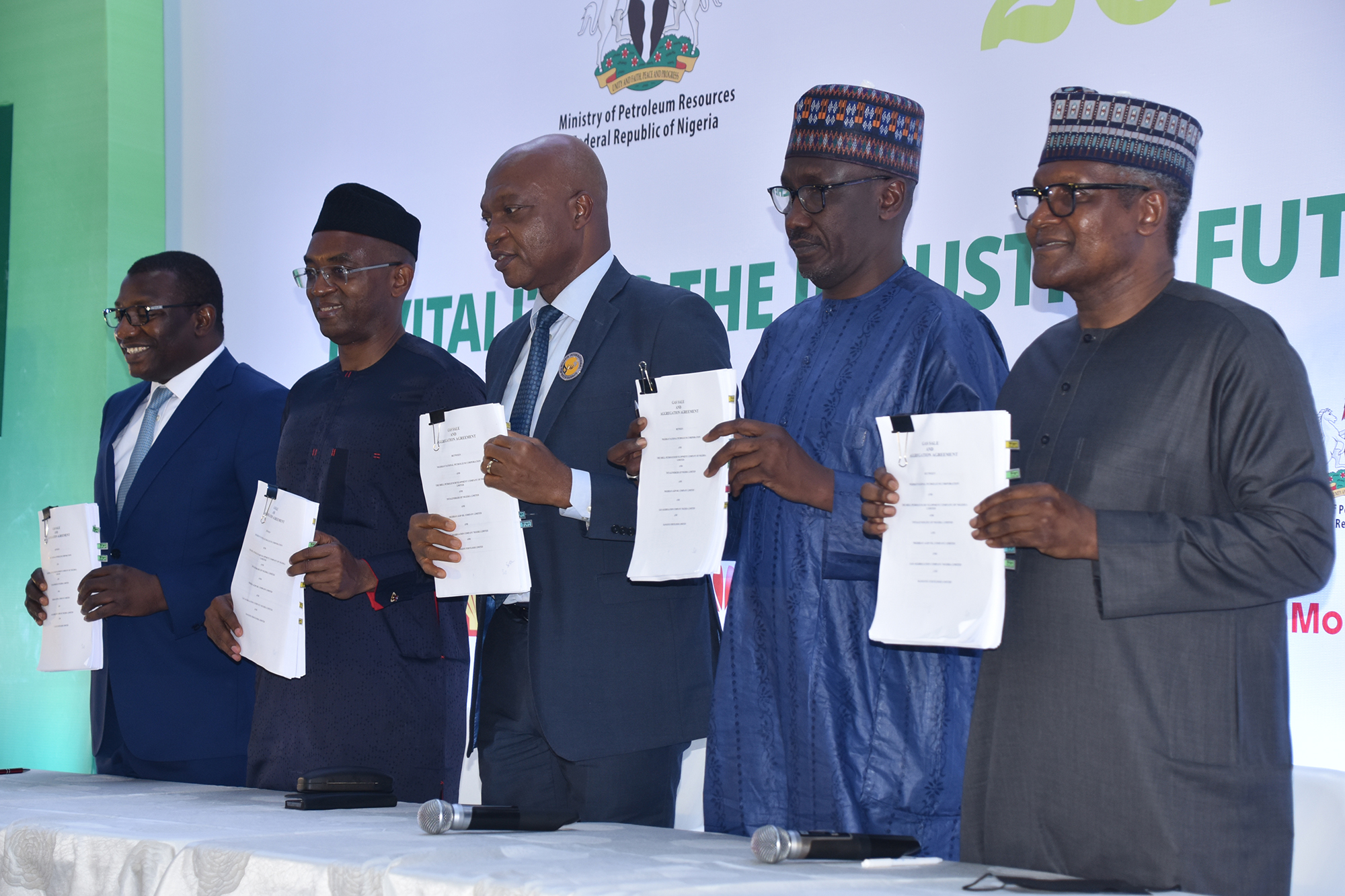Oil & Energy
Energy Transition: NCDMB Boss Recommends Intensive Petroleum Education

The Executive Secretary, Nigerian Content Development and Monitoring Board (NCDMB), Mr Simbi Wabote, has urged the Federal Government and other stakeholders to adopt a strategy to overcome the challenges of energy transition.
Wabote gave this advice in a statement by the NCMDB Corporate Communications Unit, on Sunday, as recommendation after his convocation lecture at the Federal University of Petroleum Resources (FUPRE) Effurun, Delta.
The lecture was titled “Defining the Value of Local Content in Petroleum Education.”
Wabote said that the western nations had shifted attention from oil and gas and focused on provision of funding, manufacturing of equipment, and development of supply chain to support renewable energy sources.
According to him, it is imperative that Nigeria and other hydrocarbon-rich countries develop the requisite capacity and capability to produce and utilise fossil fuel resources.
Wabote said that the ongoing debate and deadlines being set for energy transition underscored the need to develop home-grown skills to develop and manage the nation’s natural resources.
“The narrative around energy transition has further revealed the need to ensure that there is a direct link between our petroleum education and the development and utilisation of our hydrocarbon resources, so we are able to deal with any outcome of the transition,” he said.
On the Petroleum Industry Act 2021 and the Decade of Gas initiative, Wabote said they would engender investments and utilisation of the nation’s estimated 600 trillion cubic feet of gas reserves.
He said it would also lead to a boom in the gas sector and benefit discerning institutions, investors, operators, and service providers.
“These scenarios require a robust petroleum education sector to ensure that our in-country skill sets are available and sufficient to support the exploration, development, production, and processing of hydrocarbon resources,” he said.
Wabote said that education institutions should prepare for the opportunities and challenges of energy transition and gas revolution by preparing a robust curriculum in petroleum education.
He said in doing it, the mindset should be to enable Nigerians develop and utilise hydrocarbon resources using home-grown technology.
Wabote said the institutions should focus on development of top-notch graduates to enable the development of Nigerian hydrocarbon resources, especially gas.
“This will ensure that we are not forced out from the development of hydrocarbon resources due to lack of technical capability as was the case with coal development in Enugu,” he said.
Wabote said that FUPRE as an institution devoted to petroleum education should be at the forefront of preparing manpower needs for any outcome or impact of Energy Transition.
He said there was also the need to add renewables to the global energy mix to ensure energy security.
Wabote, however, criticised attempts by the western world to demonise or de-market other energy sources as well as extracting commitments and setting unrealistic deadlines for countries to abandon fossil fuels.
He advised all nations to jealously guard their locally-available sources of energy and ensure they remained in their energy mix for the benefit of their people.
Wabote said two implications had emerged from the rush to move the world away from fossil fuels, adding that it included divestment, whereby western countries shift funding away from the development of hydrocarbons towards renewable energy.
He said the other was Energy Shortage, which was the decline in the supply of hydrocarbons due to lack of investments and the fast pace of the shift to renewable energies.
Wabote said that divestment had resulted in the emergence of indigenous companies playing major roles in exploration and production activities.
“Such companies like AITEO, FIRST E&P, EROTON, and others have acquired assets and are now responsible for producing about 15 per cent of Nigeria’s oil and more than 60 per cent of domestic gas,” he said.
Wabote, however, regretted that the divestment of the international oil companies and their reluctance to make further investments in oil and gas had resulted in the repatriation of capital out of Nigeria.
According to him, this stifles the nation’s economy of the much-needed foreign exchange with funds used as loans to acquire oil and gas assets instead of being used to develop new production assets.
Oil & Energy
TotalEnergies, Conoil Sign Deal To Boost Oil Production

Oil & Energy
“COP30: FG, Brazil Partner On Carbon Emissions Reduction

Oil & Energy
DisCo Debts, Major Barrier To New Grid Projects In Nigeria ……. Stakeholders

-

 Maritime21 hours ago
Maritime21 hours agoCargo Tracking System’ II Save Nigeria N900bn In Revenue Leakages ……SEREC
-

 Editorial21 hours ago
Editorial21 hours agoHYPREP And The Collapsed Water Tank
-

 Niger Delta20 hours ago
Niger Delta20 hours agoPINL Mulls Synergize With NDLEA Against Drug Abuse
-

 Sports21 hours ago
Sports21 hours agoOgoni Nation Cup: Victory Against Amee Base Excites Coach
-

 Niger Delta20 hours ago
Niger Delta20 hours agoTraditional Ruler Seeks End To Benin Artifacts Unauthorized Promotion
-

 Maritime21 hours ago
Maritime21 hours agoNIMASA :FG Appoints Iyelolu As Registrar Of Ships
-

 News21 hours ago
News21 hours agoFederal High Court Debunks Claim Of Assassination Attempt On Justice Omotosho
-

 Rivers20 hours ago
Rivers20 hours agoPoor Parenting, Pressure, Bane Of Cybercrime – Don

